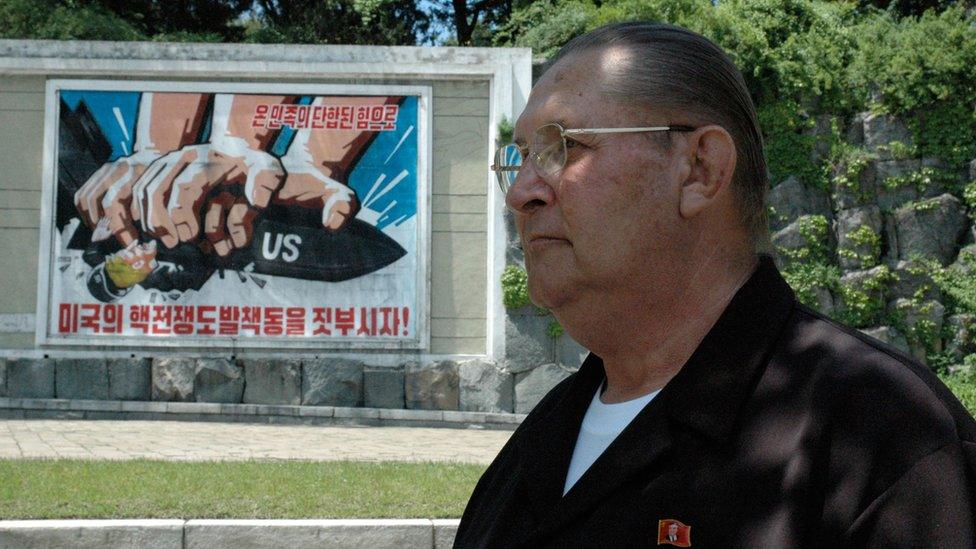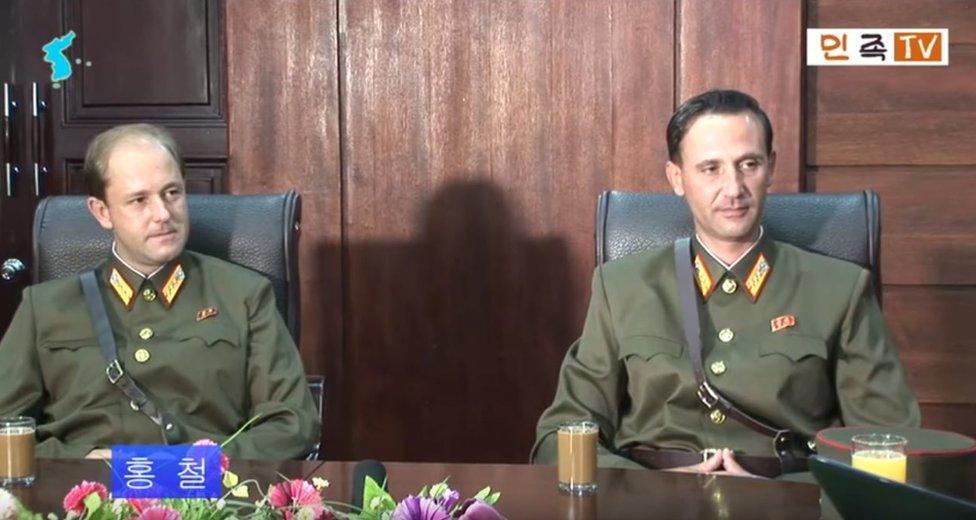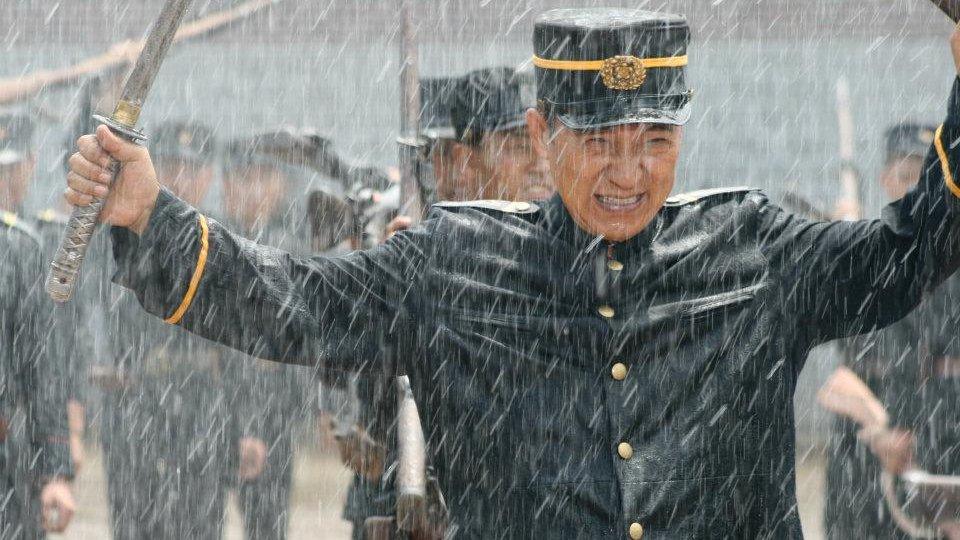James Dresnok: Sons confirm death of US defector to N Korea
- Published

James Dresnok defected across the minefields of the DMZ in 1962
James Dresnok, the last known US soldier living in North Korea, died of a stroke aged 74 late last year, his sons have confirmed.
Mr Dresnok's children said he was loyal to North Korea until the end, in a video interview published last week by local news outlet Uriminzokkiri.
After crossing over to the North in 1962 he went to lead an extraordinary life in Pyongyang.
This included a stint as a star in North Korea's film industry.
What did his sons say?
Rumours of Mr Dresnok's death, external surfaced earlier this year, and the latest video, featuring his sons Ted and James Jr wearing military uniforms and speaking in fluent Korean, is confirmation.
James Jr said that "our family was shocked because my father died unexpectedly", but added "my father ended his days without regret."
Ted, who is the older son, said his father "received only the love and care of the party until his passing".
"One thing that our father asked us to do was to become faithful workers that render devoted service to the dear leader Kim Jong-Un and to raise our children so they will follow and brighten that path," he said.

James Jr (left) and Ted Dresnok are seen in military uniforms
The interview, external was published online by North Korean television news outlet Uriminzokkiri last Friday.
It was the second time the two sons had appeared on the channel. In May 2016 they were seen praising North Korea in another video.
The two men have said in the videos that they serve in North Korea's military, and are married with children.
Why is this interview being released now?
Given that Mr Dresnok died last year, questions have been raised about the timing of the interview.
It was published just before the US and South Korea embarked on military exercises which routinely anger the North, and comes after weeks of provocative rhetoric between the US and Pyongyang.
It also appears to be targeted at a foreign audience - it was published on Uriminzokkiri's YouTube channel and has not been aired or mentioned in domestic media, according to BBC Monitoring.
But the video has also come out a week after the Los Angeles Times ran an interview, external with another US soldier who defected to North Korea, Charles Jenkins, whose past accounts have clashed with Mr Dresnok's. Mr Jenkins eventually made his way back to the US.
North Korean analyst Michael Madden told the BBC such videos were a relic from a bygone generation of North Korean propaganda play.
He said it was likely that many of those who acted as Mr Dresnok's minders are no longer part of the leadership.
Uriminzokkiri is not considered state media, but is thought to be run by North Korean intelligence, and is meant to have a pan-Korean outlook with an external focus, according to Mr Madden.
"The department is long known to have been responsible for the small and motley collection of foreign North Korean citizens, and the message conveyed by the sons of Mr Dresnok is likely to have been an important one for them," said Mr Madden.
What is Mr Dresnok's story?
Mr Dresnok was one of four US soldiers who defected to North Korea in the 1960s, and spent more than 50 years living in the secretive Communist country.
He was facing divorce and a court martial at the time of his defection.
In a 2006 documentary film with British filmmakers called Crossing The Line, he said he told himself "to hell with this - I was fed up with my childhood, my marriage, my military life. Everything - I was finished."
"There's only one place to go."
A visit to a film set in North Korea
He left at lunchtime on 15 August 1962, not sure if he would survive the trip across the mine-strewn demilitarised zone (DMZ) marking the border between the North and South Korea.
But he did, eventually starting a new life on the other side, and marrying a Romanian woman, with whom he had Ted and James Jr.
He also had a third son, born in 2001, after he married the daughter of a Korean woman and an African diplomat following the death of his Romanian wife.
Along with other deserters, Mr Dresnok played a prominent role in North Korean propaganda cinema from the late 1970s onwards - playing the American enemy - and became a household celebrity.
He also taught in a foreign language college, and translated writings by North Korean leaders into English.
His voice was used in messages played across the border at his former brothers-in-arms, telling US soldiers about his new life and encouraging them to cross the border.
"I have never regretted coming to the Democratic People's Republic of Korea", he said in the 2006 film's opening minutes, speaking in English with a strong American accent.
"I feel at home. I really feel at home... I wouldn't trade it for nothing."
- Published2 January 2014
